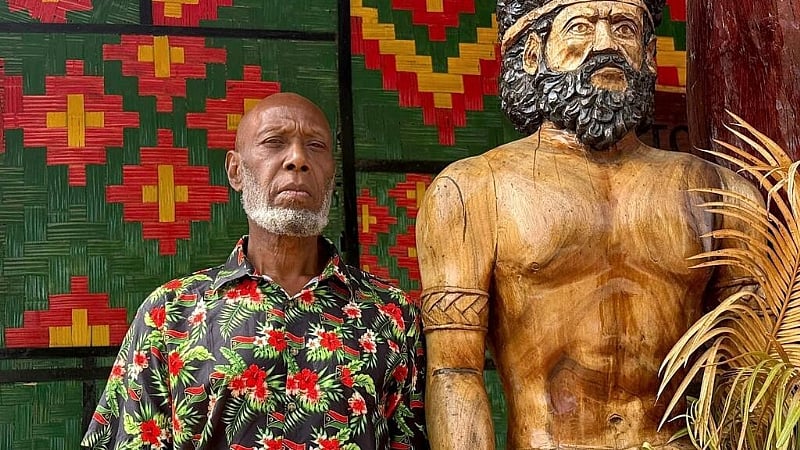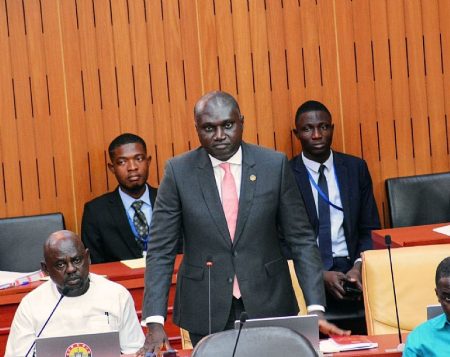The International Court of Justice (ICJ) recently issued a landmark advisory opinion declaring that nations have a legal obligation to protect the environment from climate change, a monumental victory for the small island nation of Vanuatu, which spearheaded the initiative. This decision, hailed as a triumph by Vanuatu’s leaders and citizens, acknowledges the urgent and existential threat posed by a warming planet, particularly to vulnerable island nations like Vanuatu that are already experiencing the devastating effects of rising sea levels, intensified cyclones, and changing weather patterns. Chief George Bumseng of Ambrym, a cyclone-prone island in Vanuatu, expressed profound satisfaction with the ICJ’s opinion, emphasizing the long-awaited nature of the decision and highlighting the suffering his island has endured due to climate change over the past two decades.
Ambrym Island, like many other islands in the archipelago, has been repeatedly battered by powerful cyclones in recent years, resulting in widespread damage to essential crops, forests, and traditional medicinal plants. These environmental impacts are not isolated incidents but rather represent a continuous and escalating trend, altering the island’s ecosystem and threatening its inhabitants’ livelihoods and cultural heritage. Chief Bumseng lamented the loss of fig trees, the relentless coastal erosion, and the shifting tides, all indicative of the pervasive and transformative effects of climate change on the island’s environment. The changing climate is also disrupting traditional agricultural practices, as some crops struggle to grow under the new conditions, further jeopardizing food security and cultural traditions.
The ICJ’s advisory opinion resonates deeply with Vanuatu’s younger generation, who see their future imperiled by the rising seas and increasingly violent storms. School children, acutely aware of the existential threat posed by climate change, expressed their concerns through poignant handwritten signs depicting the imminent dangers facing their schools and shores. Their school, still partially housed in tents after being ravaged by cyclones and an earthquake, serves as a stark reminder of the vulnerability of island communities to the impacts of climate change. These young people view the ICJ’s decision as a beacon of hope, acknowledging the gravity of the situation and offering a potential pathway toward a more secure future.
The sentiment of hope and determination echoed throughout Vanuatu, with young people like Susan Alexander expressing gratitude for the court’s recognition of their plight. Alexander emphasized the vulnerability of Vanuatu’s population, highlighting the recurring cyclones and rising sea levels that have plagued the nation in recent years. She underscored the responsibility of the current generation to safeguard the country’s future, emphasizing the importance of collective action to address the climate crisis. This sense of ownership and responsibility for the future of their nation underscores the urgency and personal significance of the climate crisis for Vanuatu’s youth.
Georgilla Worworbu, a resident of Vanuatu, viewed the ICJ’s decision as a gift to the nation’s children, a validation of their concerns and a call to action for the international community. She emphasized the global implications of the ruling, asserting that it speaks to all inhabitants of the planet, particularly those who contribute disproportionately to the climate crisis and inflict harm on vulnerable island nations. Worworbu highlighted the resilience of the Vanuatu people in the face of adversity, while simultaneously acknowledging that resilience alone is insufficient. She called for climate finance and reparations, recognizing the need for tangible support to address the losses and damages already incurred by countries like Vanuatu due to climate change.
The journey towards this historic legal opinion began in a humble university classroom in Vanuatu, where a group of 27 law students, frustrated by the slow pace of global action on climate change, embarked on an ambitious mission to bring the issue before the world’s highest court. Their initiative, driven by a deep concern for their nation’s future, culminated in the ICJ’s advisory opinion, a testament to the power of collective action and the determination of small island nations to hold the international community accountable for addressing climate change. This landmark decision represents a significant step forward in the global fight against climate change, offering hope and momentum for future legal and political action.














